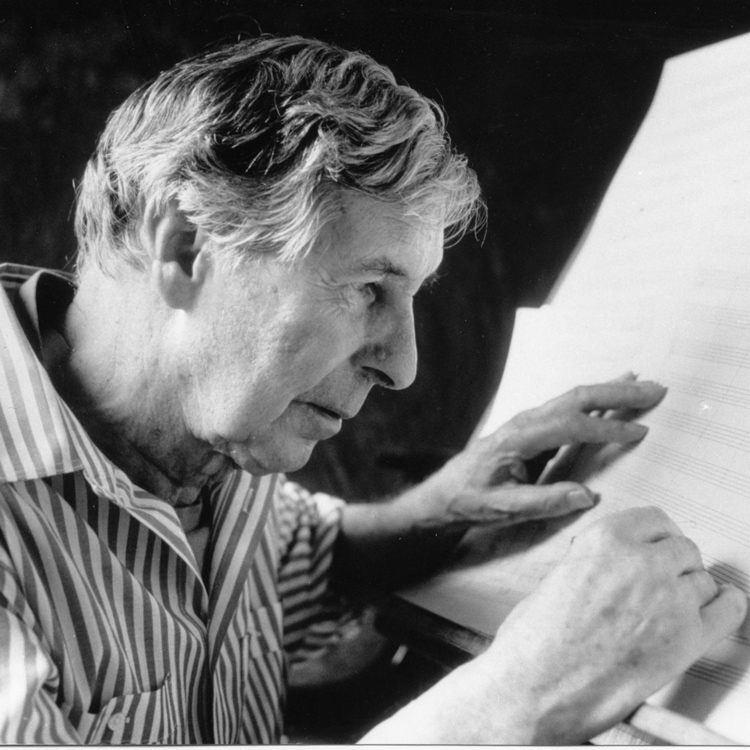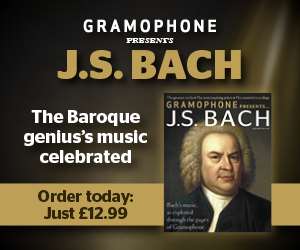
Tippett
Born: 1905
Died: 1998
Michael Tippett
Tippett's music is hard to categorise, unmistakably English but quite dissimilar in aim and content from his contemporaries Walton and Britten. He has nothing to do with atonalism or minimalism yet writes resolutely complex music which takes time to appreciate and absorb; his lyrical neo-romantic impulses are obscured by his individual expression of harmony and rhythm.
Explore Tippett's life and music...
Classic interview with Sir Michael Tippett
Alan Blyth talks to Sir Michael Tippett (Gramophone, April 1971)... Read more
Tippett's A Child of Our Time – which recording should you buy?
A Child of Our Time was Tippett’s reaction to tragic events that changed the course of world history. Geraint Lewis traces the genesis of this modern classic and follows its progress on disc... Read more
Reputations: Michael Tippett
Michael Oliver examines the legacy of a remarkable musical mind... Read more
Obituary: Michael Tippett (Jan 2, 1905 - Jan 8, 1998)
Revisit the English composer's original Gramophone obituary from March 1998... Read more
Interview: Michael Tippett on the genesis of The Mask of Time
A fascinating insight into Tippett's creative process from the Gramophone archive. Interview by Ivor Humphreys... Read more
Nice to think that a man who was born the year after the death of Dvořák (Grieg had another two years to live, Rimsky-Korsakov three) was still writing music three years before the new millennium. He was a comparatively slow starter for, after a period at the Royal College of Music, then teaching and composing, he returned to the college for further study, frustrated with what he was writing. It wasn’t until 1934 that he allowed his first pieces to be performed publicly. His First String Quartet attracted little attention and the (now well-known) Concerto for Double String Orchestra gained little more.
It was his oratorio A Child of Our Time that finally made his name, inspired by the case of a Jewish boy who assassinated a member of the German embassy in Paris in 1938. During the war itself, Tippett, a confirmed pacifist, served two months in Wormwood Scrubs in 1943 for his beliefs but managed to regain the respect of his fellow citizens after the war. Even so, it wasn’t until after the peace was regained, by which time Tippett was 40, that any of his music was readily available. As director of music at Morley College in London (1940-51) and as director of the Bath Festival (1969-74) together with other appointments, Tippett established himself firmly at the centre of British musical life, resulting in a CBE in 1959 and a knighthood in 1966.
His music is hard to categorise, unmistakably English but quite dissimilar in aim and content from his contemporaries Walton and Britten. He has nothing to do with atonalism or minimalism yet writes resolutely complex music which takes time to appreciate and absorb; his lyrical neo-romantic impulses are obscured by his individual expression of harmony and rhythm. Tippett was never a prolific composer and his works, completed slowly, comprise five string quartets, four concertos, four symphonies, five operas and a number of vocal and choral works.

Gramophone Digital Club
- Digital Edition
- Digital Archive
- Reviews Database
- Full website access
From £8.75 / month
Subscribe
Gramophone Full Club
- Print Edition
- Digital Edition
- Digital Archive
- Reviews Database
- Full website access
From £11.00 / month
Subscribe
If you are a library, university or other organisation that would be interested in an institutional subscription to Gramophone please click here for further information.





